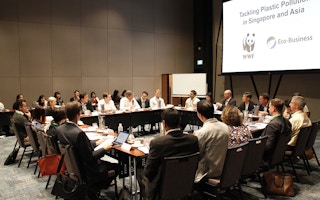Africa is already struggling to cope with the effects of climate change and the adaptation costs are so huge that hundreds of millions of people will be put at risk unless richer nations provide $200 billion of aid a year, the United Nations Environment Programme says.
A UNEP report published here, Africa’s Adaptation Gap, paints a grim picture of sea level rise, loss of agricultural production, spreading disease, floods and droughts beyond the power of Africa to deal with.
Launching the report, Mr Tosi Mpanu, from the Democratic Republic of Congo, leader for the African Group of Negotiators here, said the plight of Africa was not of its making. It was the developed countries that had caused the problem and Africa was asking for the funds to help. But so far they had not been forthcoming.
“This report shows that one billion Africans are in harm’s way. We witness instability in rainfall, diseases spreading, sea level rise and floods”, he said.
“One of the effects of climate change is to send Africans further and further to seek water. This brings them into conflict with other Africans. We are faced with wars on African soil that are not created in Africa.
No sign of money
“We came to this conference in Poland expecting help with the adverse effects of climate change, but so far there are no signs of the finance that Africa needs.
“We are hoping that the arrival [in Warsaw] of ministers will signal a strong political commitment to scale up the finance to help us adapt. There are many adaptation projects in the pipeline but the money to do them is running out. We need a top-up for these funds, but so far there is no sign of it.”
The report says that even if world leaders were able to keep temperature rise below the danger level of 2°C beyond pre-industrial levels, the adaptation costs for the continent would still be $150 bn a year. If, as now expected by the scientific community, the temperature rise reaches 3.5°C by 2070, adaptation costs will have risen to $350 bn annually.
It says that already by 2020 adaptation will be costing $7 to $15 bn, and the cost will rise steeply since higher levels of warming will lead to higher impacts. Among the adaptation measures Africa urgently needs are early warning systems for floods, droughts and fires to help people prepare for extreme events.
Adapt or perish
Because of changing climate, the report says, irrigation, improvement in water storage capacity, reforestation to protect surface water systems, sustainable use of groundwater systems and desalination of seawater are among the projects needed.
On the coast, where sea level rise is expected to be as much as a metre, seawalls, dykes and breakwaters are needed to protect coastal communities and ports. Food storage in cities and urban agriculture are needed to enhance food security.
Professor Ephraim Kamuntu, Uganda’s Minister of Water and Environment, said: “This report provides concrete evidence that climate change in Africa is a reality. We have to adapt or perish, but our capacity to respond is limited.
“The report shows the cost of waiting to do something is far greater than doing something now. How many super-typhoons do we need before we have to take action? This is a matter of survival. What are we waiting for?”
Asked whether the African delegates at the climate conference were disappointed at the continuing lack of the funds promised so far, Mrs Haddijatou Jallow, executive chairperson of the Sierra Leone Environmental Protection Agency, said: “We have not given up hope – what choice does humanity have? Our survival as the human race depends on it. We must find a solution, we must fund what it takes to solve the problem.”

















